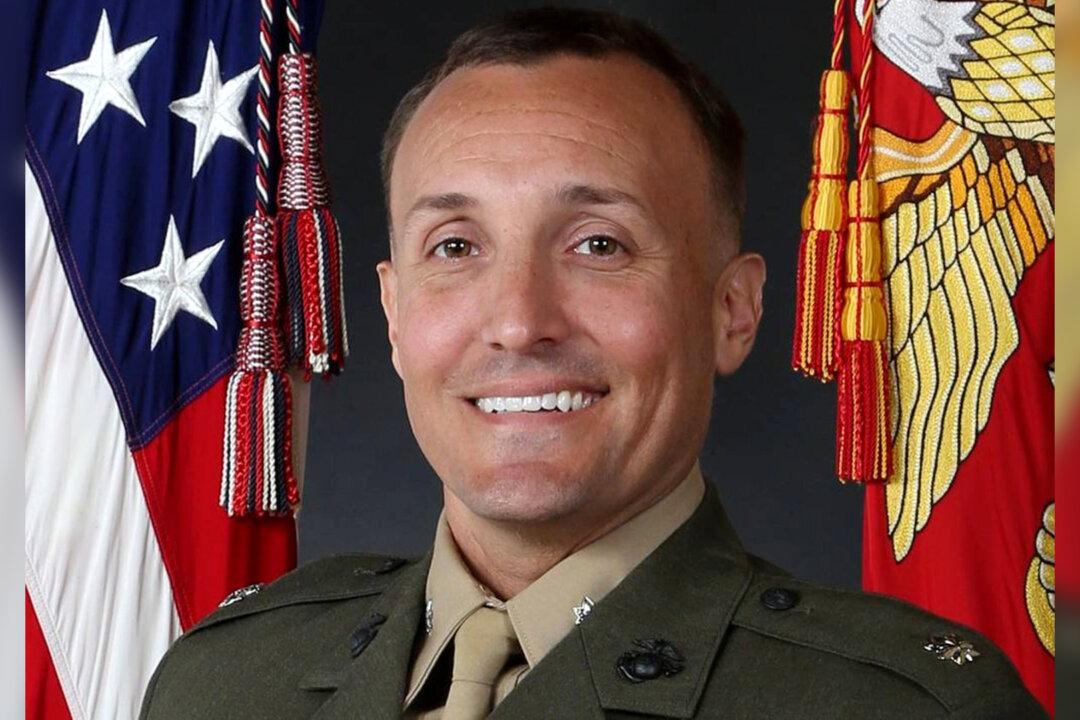Marine Lt. Col. Stuart Scheller’s defense team has criticized military officials for leaking case documents ahead of an Oct. 14 trial by special court-martial, saying that the leak is designed to harm Scheller’s reputation and distract people from his calls for accountability for senior leadership’s disastrous Afghanistan withdrawal.
On Oct. 9, Task and Purpose published a story based on leaked documents that purport to show Scheller’s support for the Jan. 6 U.S. Capitol breach.




